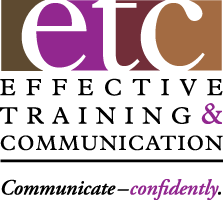I used to refer to this concept as networking with ‘common courtesy’. But, just like ‘common sense’, this practice is anything but commonplace in the business world today. One of the fastest and smartest ways to make that best possible first impression when networking is both very simple and very easy. Just display ‘Uncommon Courtesy’ that clearly differentiates you from the pack of amateurs by:
- Talking less and listening more, especially when you listen intensely to other people’s words, their tone of voice and their nonverbal or body language messages. This helps you avoid talking too much, especially about you.
- Telling less and asking more, especially asking good questions about them and what they do.
- Asking for their card at the end of a brief conversation so you can follow up … not at the beginning of it.
- Asking for permission to give them your card rather than automatically handing it to them.
- Introducing them to other people you meet.
- Waiting to take a seat until the workshop is just about to start and then asking permission to join those already seated.
- Asking if this is a good time for them in the first 15 seconds of your follow up phone call.
- Respecting their time by not asking for large amounts too soon in the relationship. Several short phone conversations or an e-mail exchange are better than holding out for that 90-minute lunch.
- Returning their calls promptly and getting back to them when you said you would.
- Sharing resources, ideas or contacts to help them accomplish their networking objectives. Givers always gain.
- Sending them a hand-written thank you note when they share something useful with you.
These strategies take so little time or effort, but do so much to impress other people that you are a quality person and a networking pro. Whether they treat you the same way doesn’t matter. Uncommon Courtesy helps you live by Dr. Tony Alessandra’s “Platinum Rule” – treating other people the way they want you to treat them. So, try to network with that in mind at every event you attend.
